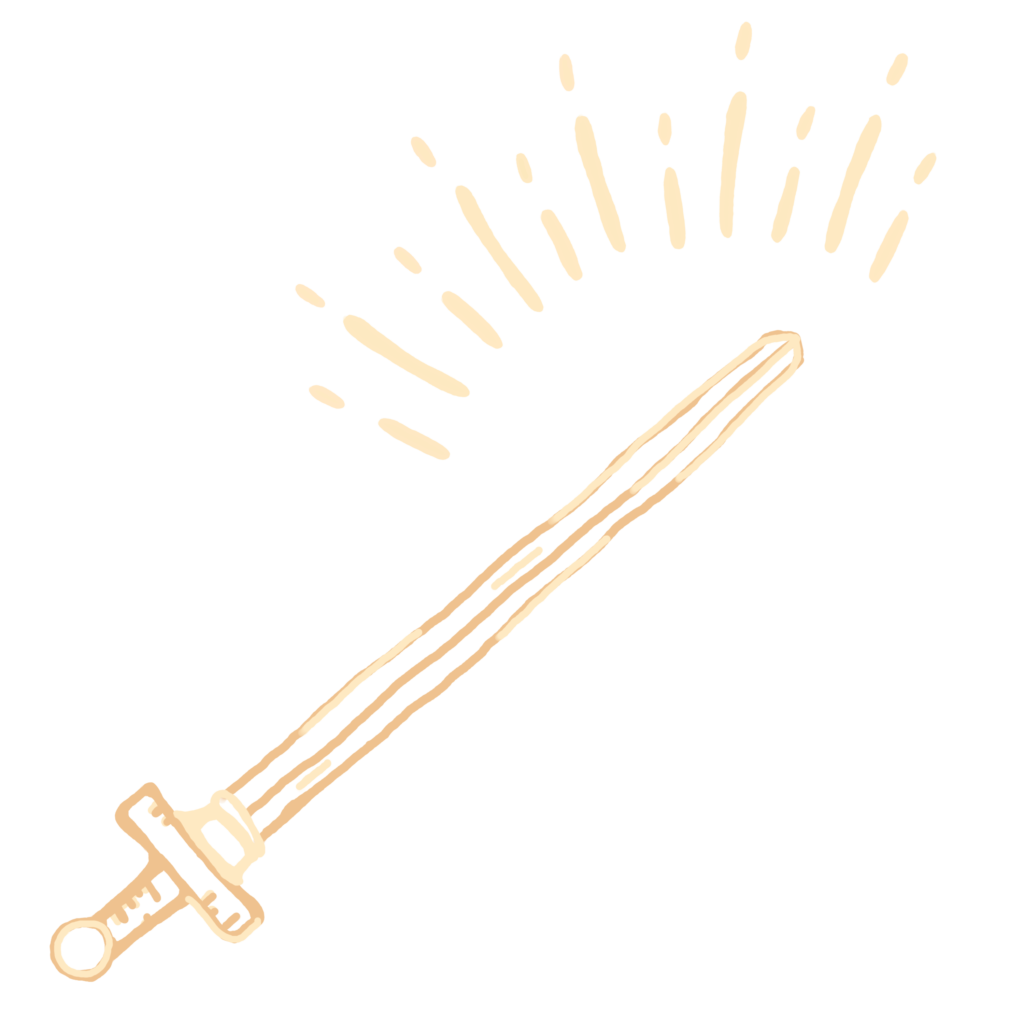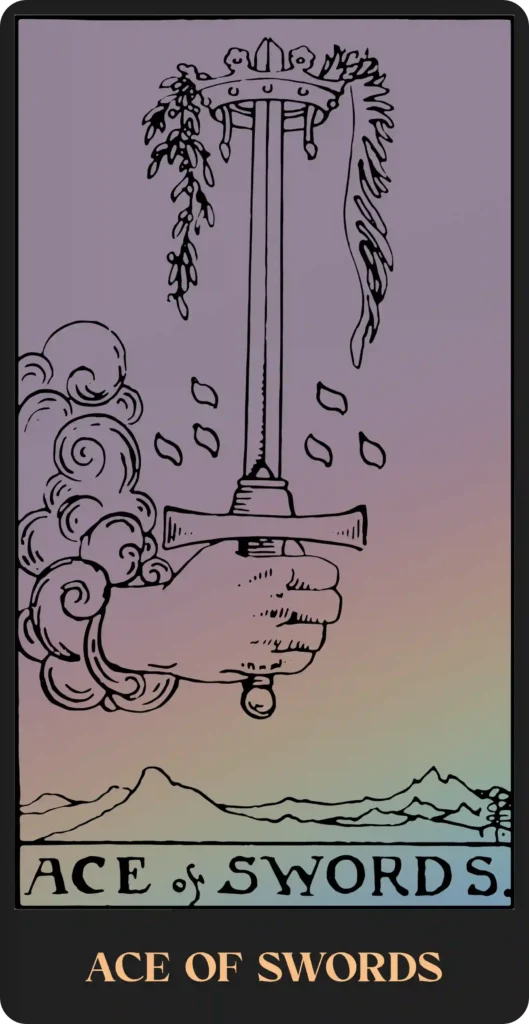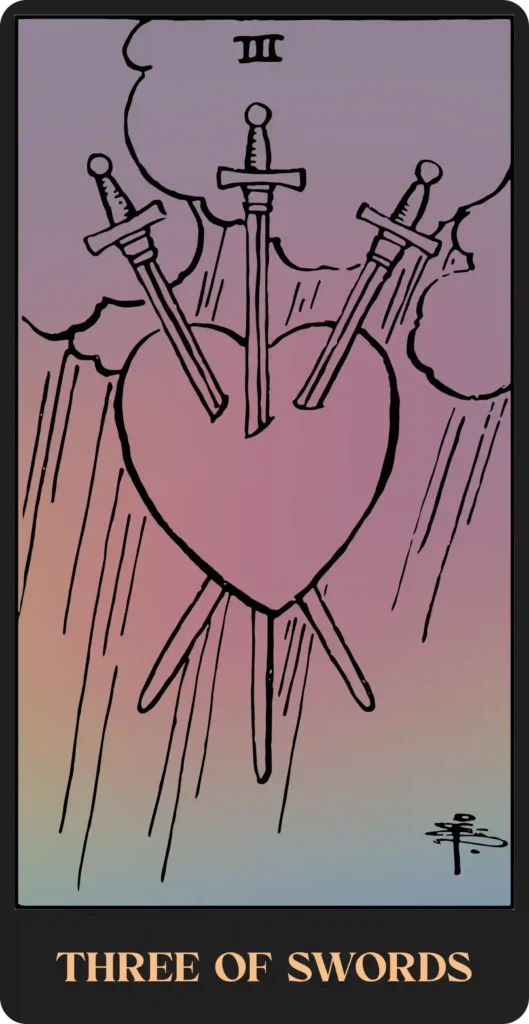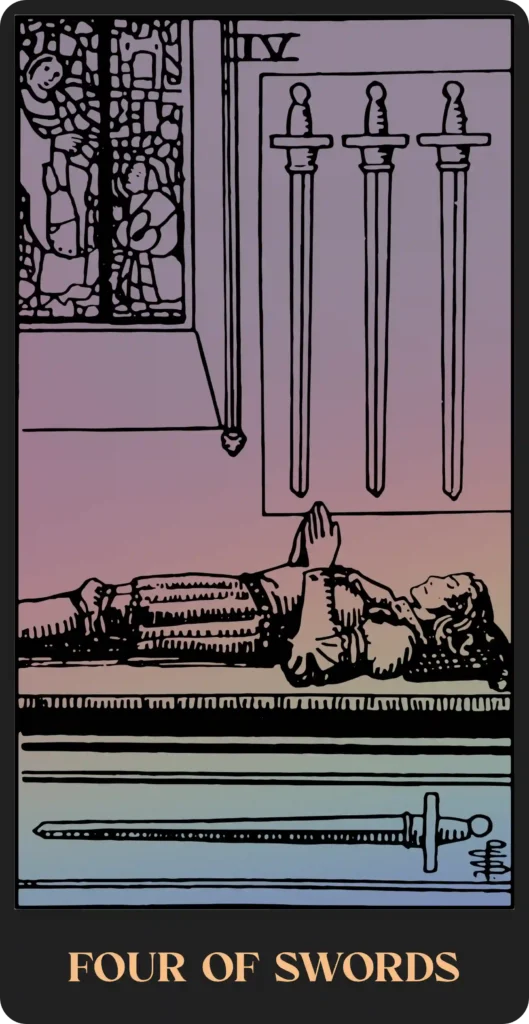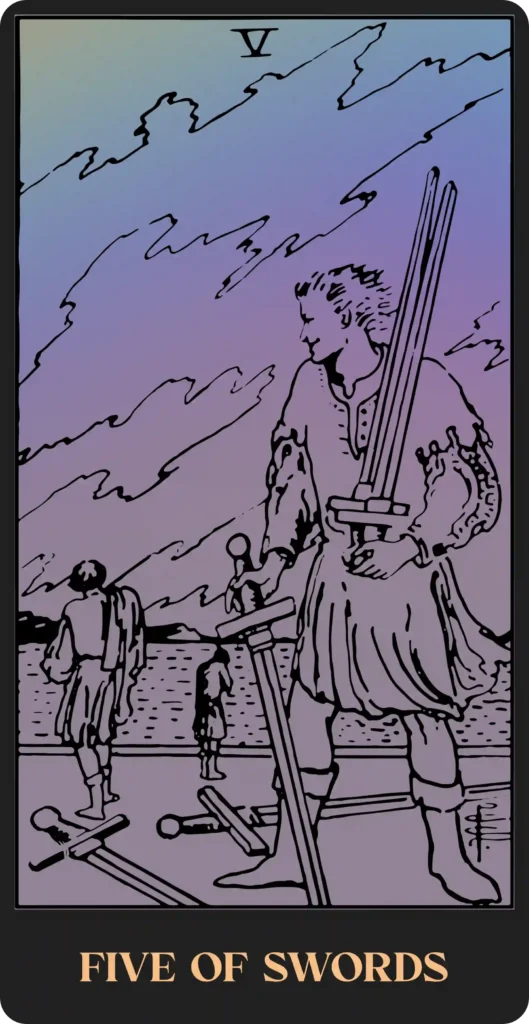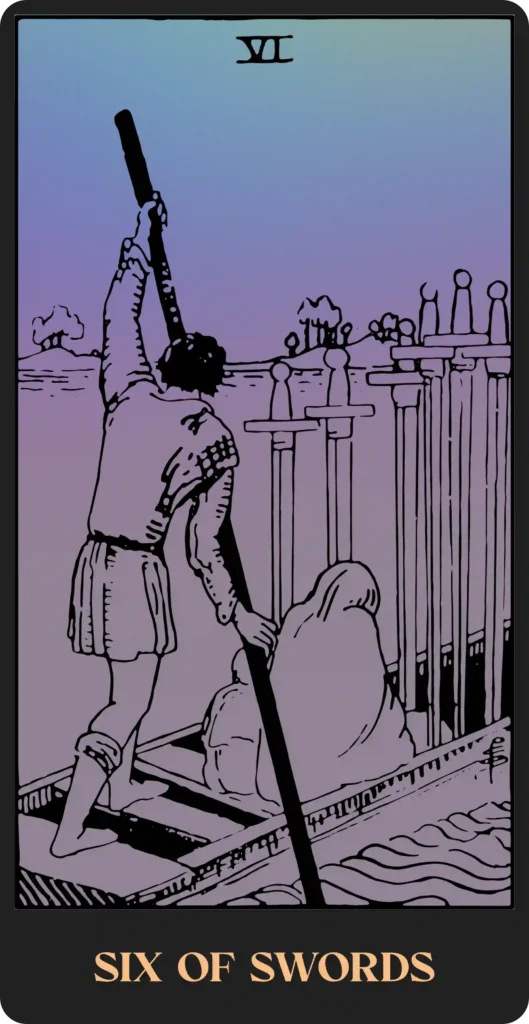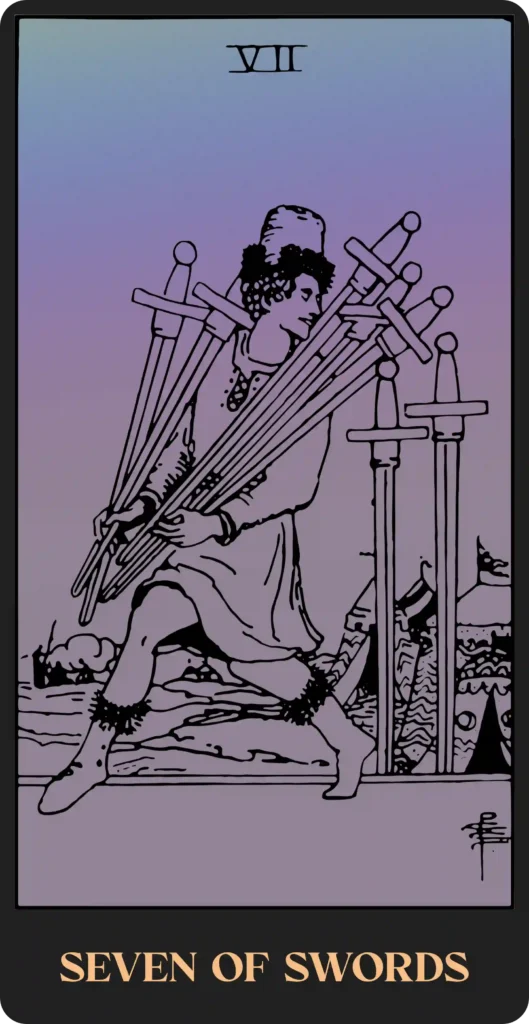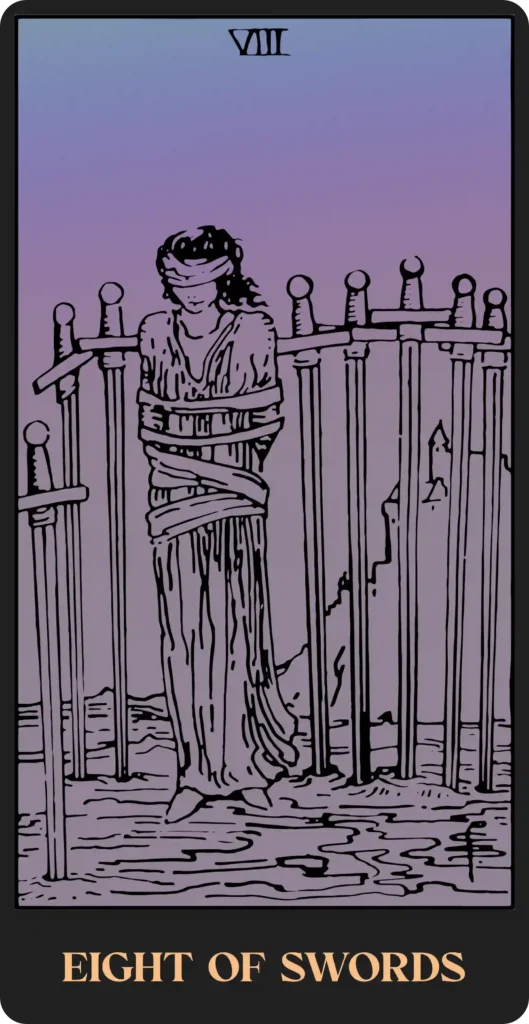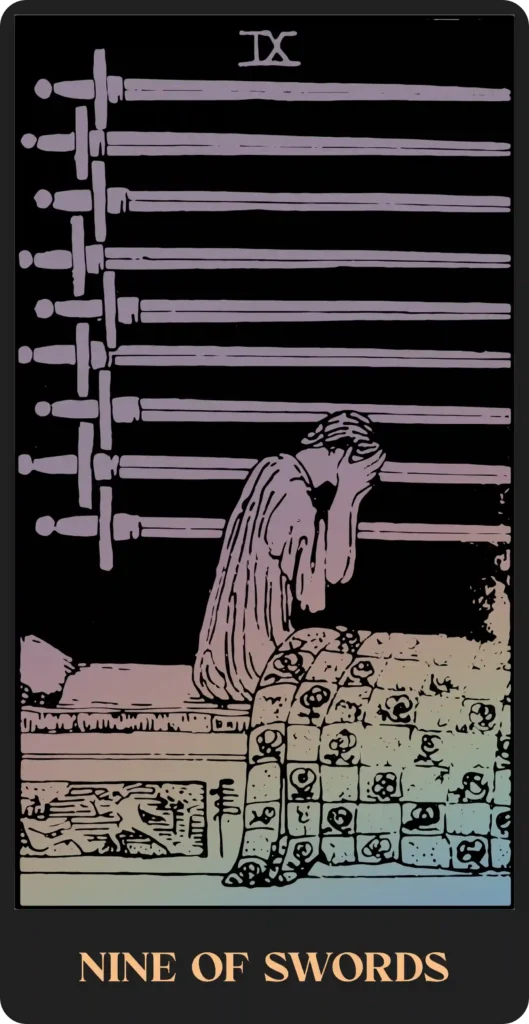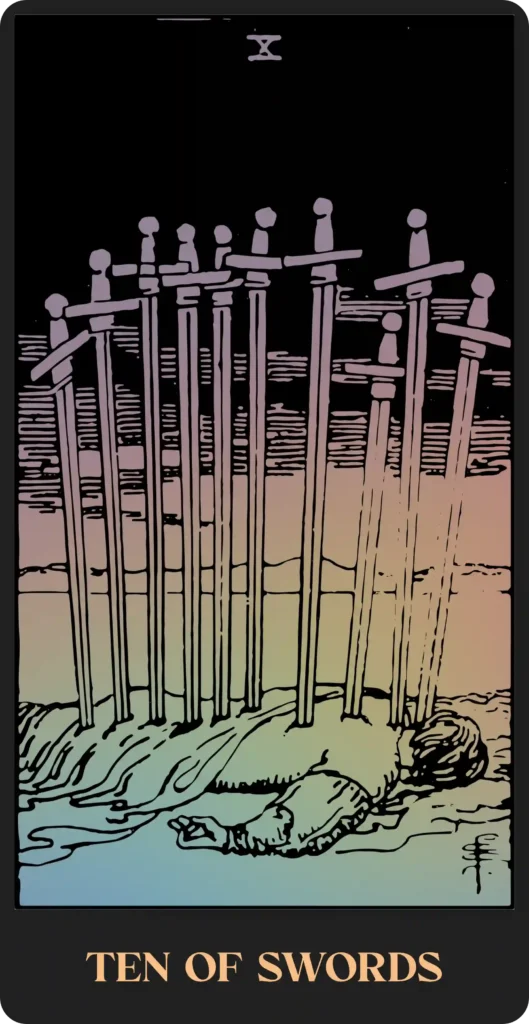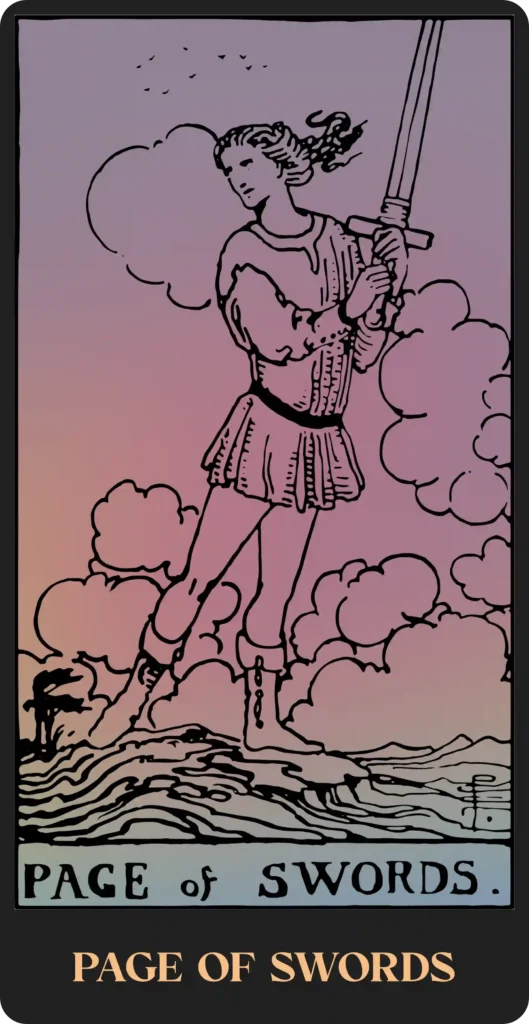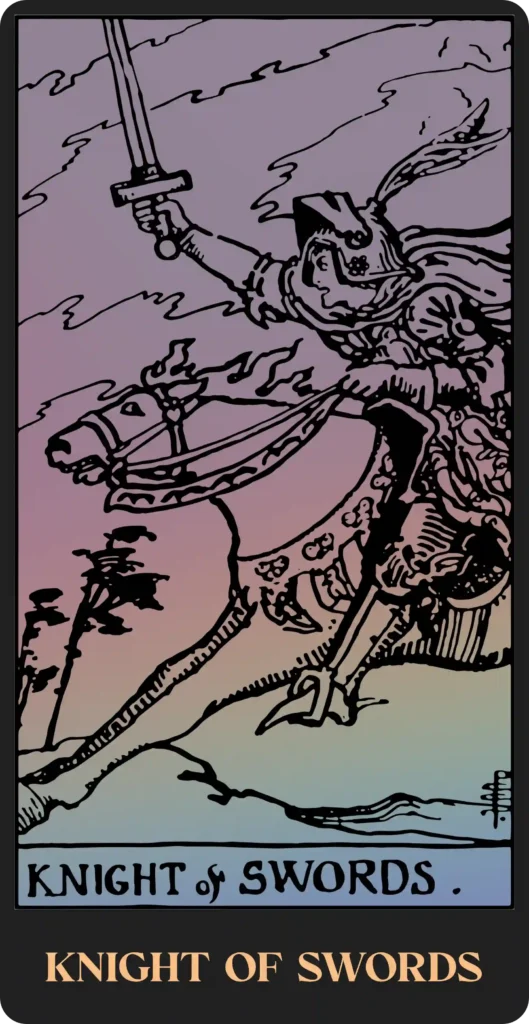SWORDS
Like an expertly crafted sword, the well-honed and logical mind slices through emotion and deception like butter. Swords, like air, are quick and, if balanced by a master craftsman, can feel light as a feather. This lightness, inherent to the air element, allows for spontaneity, adaptability, and, at times, impulsiveness. Hence, we must remember that with great knowledge comes great responsibility. Whoever takes up the sword must do so tactfully (Seven of Swords) so as not to cut themselves or others (Five of Swords).
Although forged by scalding temperatures, steel becomes cool to the touch. This coldness reflects the mind that leans too far into logic, appearing harsh, ruthless, and distant. This behavior cuts us off from our hearts and others. You will consistently find this theme of solitary pain throughout the Suit of Swords, most acutely rendered in the Three of Swords, which shows a thrice-stabbed heart underneath a stormy sky. Many characters within the Suit of Swords are also blinded, trapped, and tortured by their minds (Two, Eight, and Nine of Swords). They overthink and spin helplessly in their thoughts like a swirling wind, unable to see past the storms of confusion and make a decision (Two of Swords).
Like the figure in the Eight of Swords, surrounded by sharp edges that could cut them loose, we must realize our ability to slash through these mental binds. Sometimes, this means leaving rough waters for a calmer shore (Six of Swords); at other times, it means allowing ourselves to rest our weary minds (Four of Swords). We all must inevitably face the winds of change, and we will not always make the best decisions. With time, we must learn from our mistakes, face the truths we would rather avoid, and remember that one step forward is better than staying in the same place.
